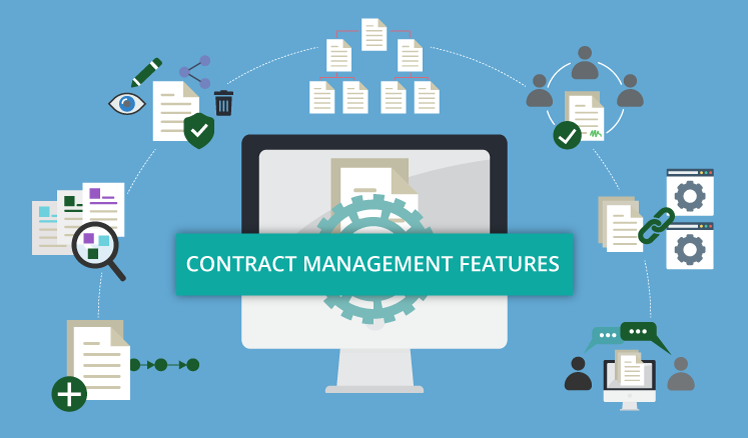I am pretty sure you all have an idea of how many startups join the competition every year and out of them, how many really survive! Data by Investopedia shows that almost half the startups fail to survive, and collapse within their first five years of inception. A lot of startups fail to last for various reasons. Some are unavoidable reasons, and some, which are entirely avoidable!
Many-a-times, startups have a great approach, a great team, and an exceptional go-to-market strategy. However, sometimes, it’s just the product, which is the problem. When everything is right and on track, why give up on the business when you can only change the product? Have you heard of the saying, “If you can’t change the guy, change the guy!” Similarly, if the product is the problem, why not come up with a more relevant product instead of landing your business in a dormant state?
Entrepreneurs and startups need to understand and realize the fact that if fruits don’t go well with burgers, selling fries instead can solve the problem. Your channel and your resources remain the same, your sales grow and you make it big that way. Isn’t it?
In history, a lot of companies have pivoted their businesses and have successfully capitalized over their markets. Pivoting of businesses is not something new, just that you need to be sure and ask yourself these five questions before you go ahead with its implementation.
Are you confident that the pivot is correct for your business?
Let’s begin by understanding the purpose of pivoting a business? The first and foremost purpose of pivoting a business is to retain your current assets. When I talk about preserving your assets, it includes your employees, your network, and your branding! However, it’s also possible that these assets are actually liabilities in disguise, right?
Here, what I am trying to imply is, a pivot is not for everyone. If your business is struggling because of certain decisions that you’ve made, i.e., you’re witnessing a downfall because you landed up in an unwanted controversy, damaging your brand’s image, then pivoting your business is not really going to help! Brands build relationships with customers, and once their trust tarnishes, there is actually no point of pivoting.
Let me put it in straight words for you. If you have a great company and it’s just the product which is the problem, you should consider pivoting your business. However, if your business is the problem, I’m sorry, my friend, but then that business has to perish.
Can Customer Feedbacks Secure Your Future?
Your business is only going to be a success if it solves a want or a need. Think about it, who is going to pay for your products or services? The customers, right? Today, several startups go down majorly because they were developed following the entrepreneur’s desires and not customers’ desires.
If you are looking to pivot your business and intend to capitalize on it, you need to make sure that your pivot satisfies consumer needs and wants. Now, how is pivoting your company a better option than starting all over from scratch? Firstly, you already have a user base. You can easily carry out surveys to get information. The use of questionnaires and feedback can potentially lead you towards choosing the right product, as per consumer requirements.
Is Leveraging Your Network an Option?
Guys, what does LinkedIn say? It’s not about what you know; it’s about who you know that matters. Skillfulness and knowledge of implementation is a crucial part of any business. However, networks continue to remain the primary aspect. Networking is a tool that can actually steer your way to success.
When you, as an entrepreneur, are considering pivoting your business, networking becomes all the more critical as it becomes a structure for the support, essentially helping you look at the pros and cons of an idea. Feedbacks from your customers for your current business are imperative in order to know and understand what you need to change so that you meet the consumer demands.
Feedback from your network enables you to access insight into how you can build the business your consumers need. Now, how do you leverage your network? You start by gaining an insight into your new market, followed by analyzing the systems that will help your venture, and finally, looking out for new and relevant partners and suppliers.
Growing your network is always a great idea as there is a possibility that your current and ongoing network may not be the best fit in helping you move up in business.
Are You Decided?
We all know it’s great to plan. It’s evident that you wouldn’t want to compromise on your planning and would be willing to give the stage the time it requires. Here’s a Business Planning Template that can help you kickstart your pivoted business! But then think about it. The more you delay, the more losses you are making. Planning, for sure, is proper, but is overplanning helpful?
If you, as an entrepreneur, are at the starting point, giving your planning all the time in the world wouldn’t harm you. However, when you are at a phase where you are considering pivoting your business, the longer you take, the more significant losses you make, right? Be sure of what you need to do, make those decisions at the earliest.
Balance is the key. Yes, you need to give time to your planning in order to convert losses into profits, but then at the same time, you also need to buckle up and move fast in the direction. However, you need to understand that you are an entrepreneur and not a bar of chocolate. You won’t succeed as soon as you hit the market.
Marketing your new pivoted product will take some time, but if you have done your homework and market research right, you will hit the number you are looking for. Keep this in mind when you implement your go-to-market strategy. Be optimistic, and you will succeed.
Good Read: Decrypting the Fiasco of Cash Inflow in Your Business
Are You All Set To Modify Your Business Information?
Once you have pivoted your business, it is of utmost importance to start with a clean slate. You don’t want your old residue to tag along with the new pivot. Make sure you are giving your new pivot the time and attention that it deserves, which essentially means leaving behind everything related to your previous business.
A couple of things that you need to update include your website, marketing material, information about your suppliers, and your official branding. Make sure that you do not have anything in the pivot, what your previous business had. Hire highly-skilled developers in your new team! An example: if you repaired cycles, and now are pivoting into manufacturers, it is your responsibility to make sure you don’t appear on repairing lists.
It’s absolutely alright if you take some time doing this because what your consumers see on social media and google listings is what they are going to consider. Update all the required and necessary information before you actually hit the market.
It’s absolutely alright if you take some time doing this because what your consumers see on social media and google listings is what they are going to consider. Update all the required and necessary information before you actually hit the market.
Final Thoughts
Are you at a position where you are considering pivoting your business? Make sure you ask these five fundamental questions to yourself before you leap into this phase. Roy T. Bennett once said, “Don’t be pushed around by the fears in your mind. Be led by the dreams in your heart.” Be optimistic. All the best!
Author’s Bio (Moeen Khan)
Moeen is a Content Strategist and Social Media Marketer associated with Resourcifi Inc. He actively writes about Staff Augmentation, IT outsourcing, and business-specific topics. Having an experience of 3 years in the content industry, Moeen is continuously trying to expand his horizons. He likes to stay on top of every development in technology, business, and finance. Moeen is consistently trying to transform complicated concepts into understandable bites for his readers!








Add Comment